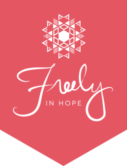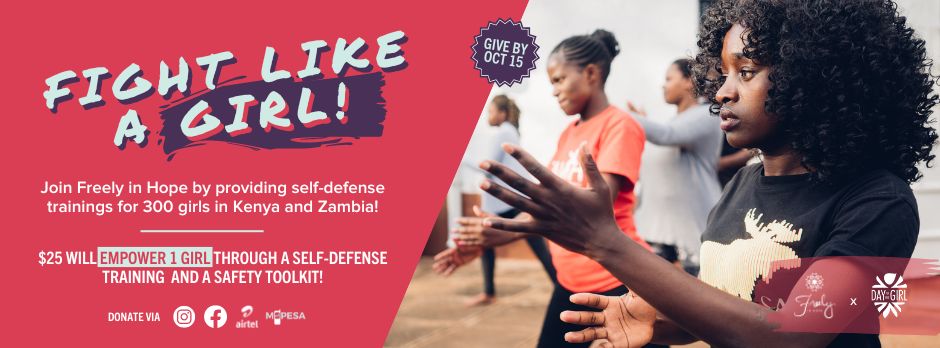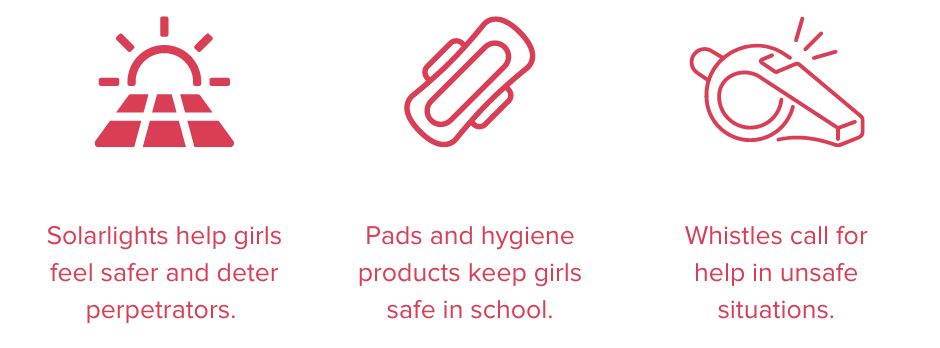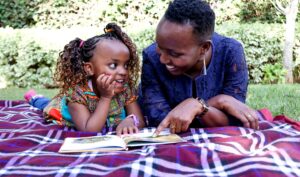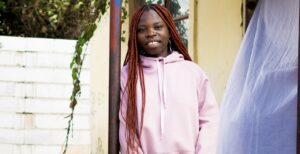Kibera is East Africa’s largest informal settlement. It’s home to over 1 million people—entrepreneurs, creators, artists, educators, and change makers. It’s also my home where I was raised and still live to do my part and build up infrastructure by providing opportunities for employment and offering anti-sexual violence education to community members. The generation that formed Kibera built this informal settlement in search of new opportunities outside of the village. Though they moved to a new community, some oppressive cultural mindsets remained. Because boys were raised to be dominant over girls, they fed into that power by sexually abusing girls. In addition, the rate of unemployment raises levels of financial stress. Because men feel powerless over the economy, they abuse women to feel more powerful. Violence will never build a better world!
But I have hope for this new generation!
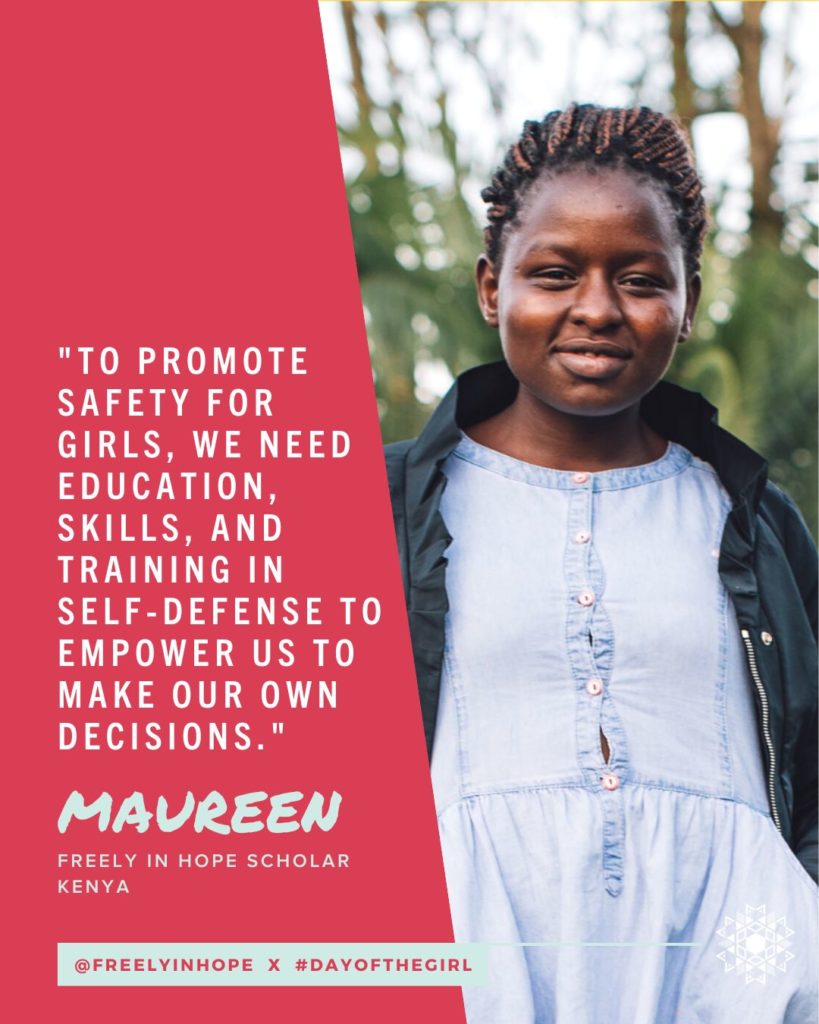
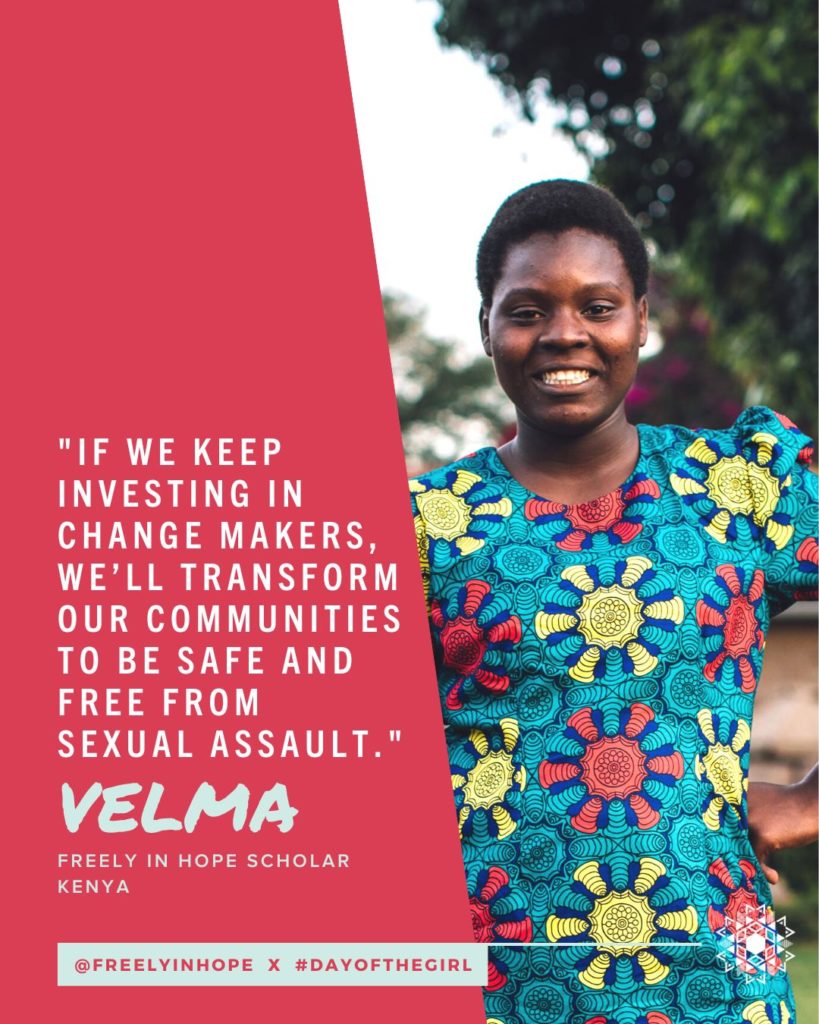
When we teach this new generation to honor and respect women, this new generation will create great change.
Here are 3 ways we can promote safety in Kibera:
1. LIGHT UP THE STREETS
Homes are built closely to each other which makes girls more vulnerable to being pulled into homes and raped. Where I grew up, there was one toilet for over 100 people in our area. In the bathing room, iron sheets were falling apart, so we would stuff rags inside the holes. Men often leer at women while they’re showering which makes them vulnerable to abuse. In the streets, there are no lights. When the government puts up lights, violators often tamper with the lights to resume their violent schemes. In addition, all toilets in Kibera are public.
If I had a magic wand, I would light up the streets and provide solar lights for every person to use when the power goes out. When the power goes out, power outages might last 2-3 weeks. Homes are dark, making the streets even darker. With a solar light, girls will be able to study at home which supports their education, growth, and future career. Education also empowers girls to use their voices, recognize violence, and pursue their futures on their own terms.
2. TEACH SELF DEFENSE
As girls, we were not taught how to defend ourselves growing up. We were taught to be submissive, quiet, and shy. We were taught to comply, to serve men with respect, and to listen to men. The oppressive ways girls have been taught to “be seen and not heard” silences incidences of sexual assault. If cornered in a dangerous situation, our first response is panic, freezing, and feeling disempowered to respond. However, self-defense is a necessary life skill that can teach girls that they do have power over their bodies, that they do have a voice that matters, and that they do have the autonomy to make choices for themselves!
3. EMPOWER GIRLS
On International Day of the Girl this year, Freely in Hope is empowering 300 girls through self-defense trainings in Kenya and Zambia. When girls in our communities are exposed to self-defense training, it will give them confidence to respond courageously. Self-defense training provides more than just physical safety, it provides the empowerment to know they have the right tools and resources to respond. Our self-defense course will help girls tap into their innate self-belief so that they know that their voice matters. In addition to the training, each girl will get a safety toolkit with a d.light solar light, whistle, and pads to keep them safe in school.
Freely in Hope is creating a safe environment to make every girl feel safe enough to open up about harassment or abuse. Instead of responding with shame and guilt, enforced by cultural beliefs, we hope girls would know that they have the power to change systems.
I believe that the courage of girls will stop violence in our world!
each safety toolkit will include:
Join Freely in Hope by empowering 300 girls through self-defense trainings in Kenya and Zambia. Your $25 donation will empower 1 girl through our self-defense training and safety toolkit!
Donate by October 15 to get your donation matched in time for our event!
Other ways to give:
Donate on Facebook or through Instagram on your mobile app by following @freelyinhope.
To donate via Mpesa, Pay Bill: 891300. Account: GG18908
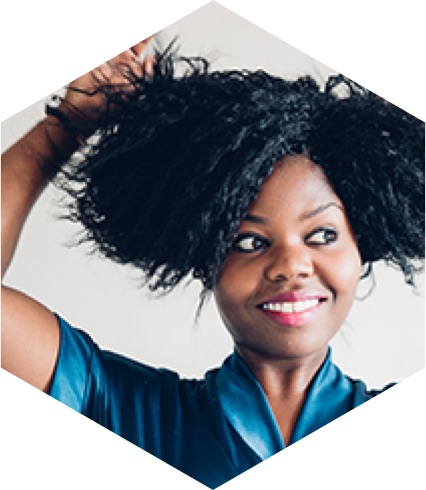
Lydia Matioli, Program Manger in Kenya, is passionate about building platforms for survivors and advocates to be leaders in their communities. She’s the author of Pendo’s Power, a children’s book that teaches children about body autonomy, consent, safe touch, and the power of their voice! Born and raised in Kibera, East Africa’s largest slum, Lydia has experienced the effects of sexual violence, lack of education, and poverty first hand. Now, as Freely in Hope’s Program Manager, she coordinates, designs, and implements programs that exemplify best practices on ending the cycle of sexual violence. Lydia graduated with first class honors in Bachelor of Arts in Gender, Women and Development studies and has 6 years experience in program design, implementation, and community outreach. She loves seeing survivors unlock and fully live out their potential.
